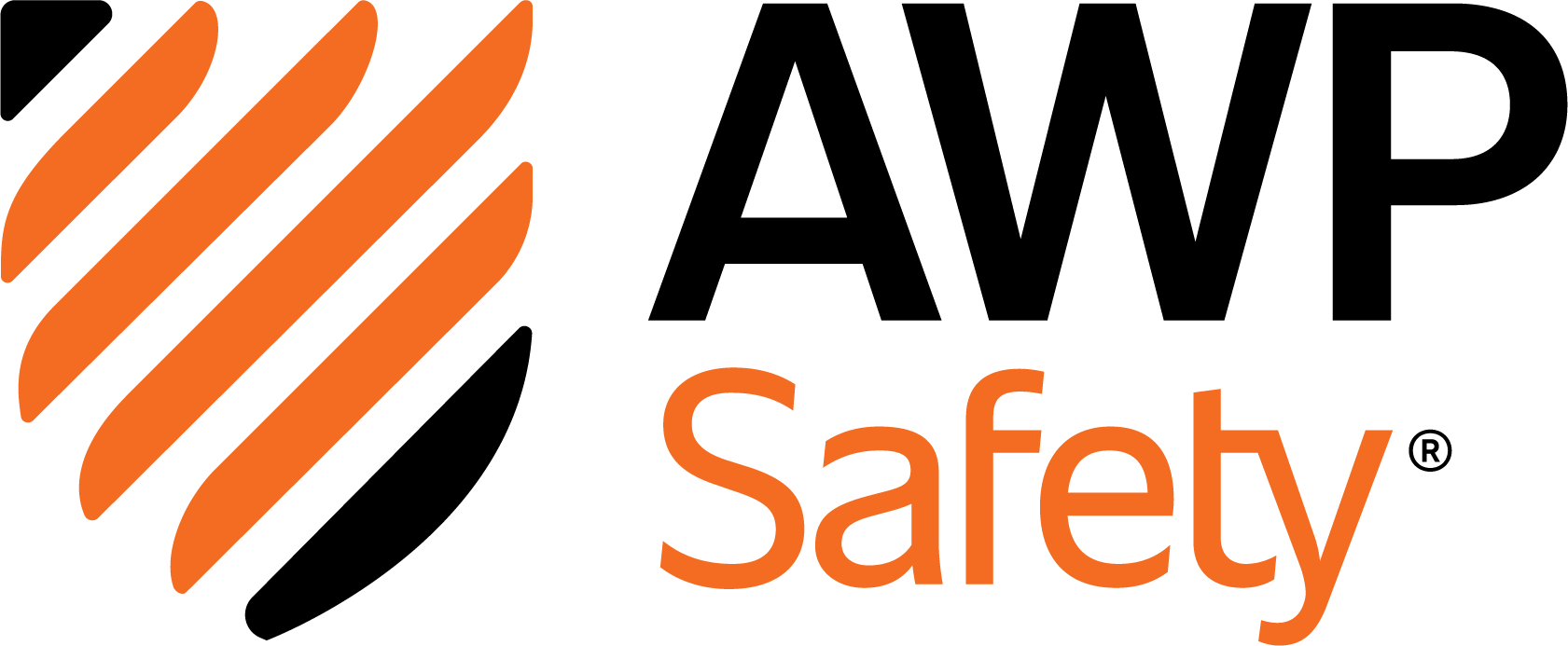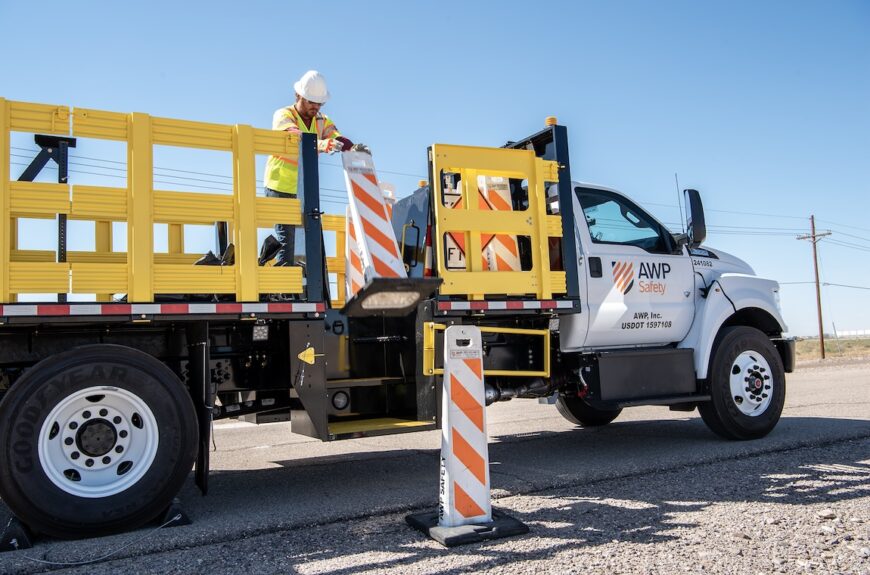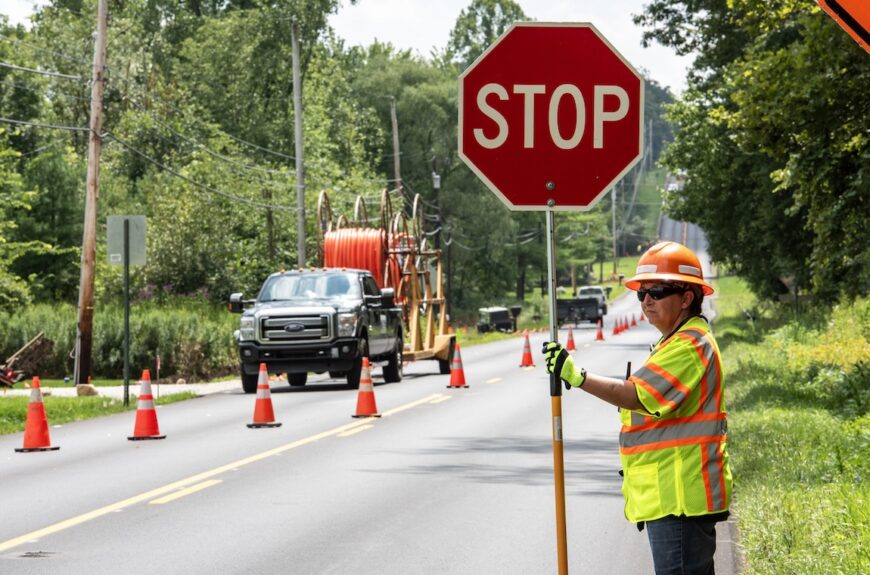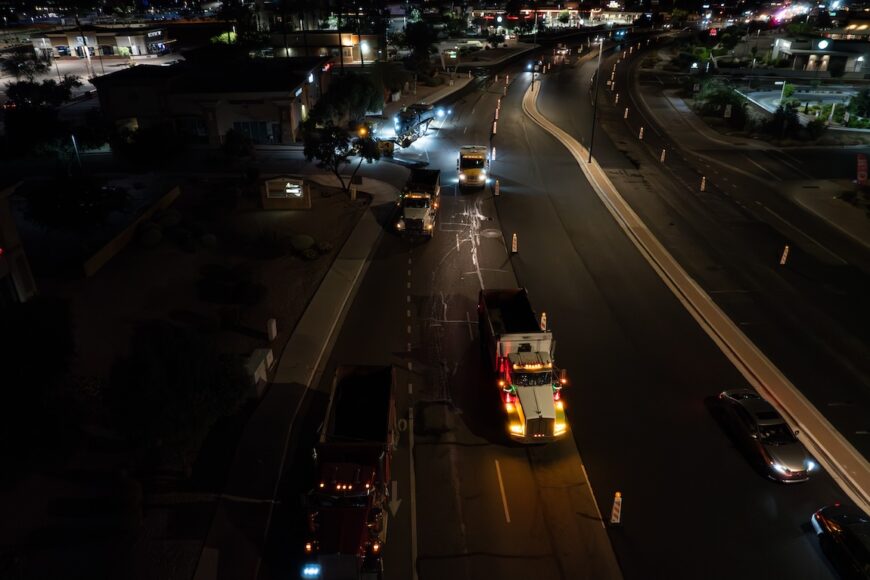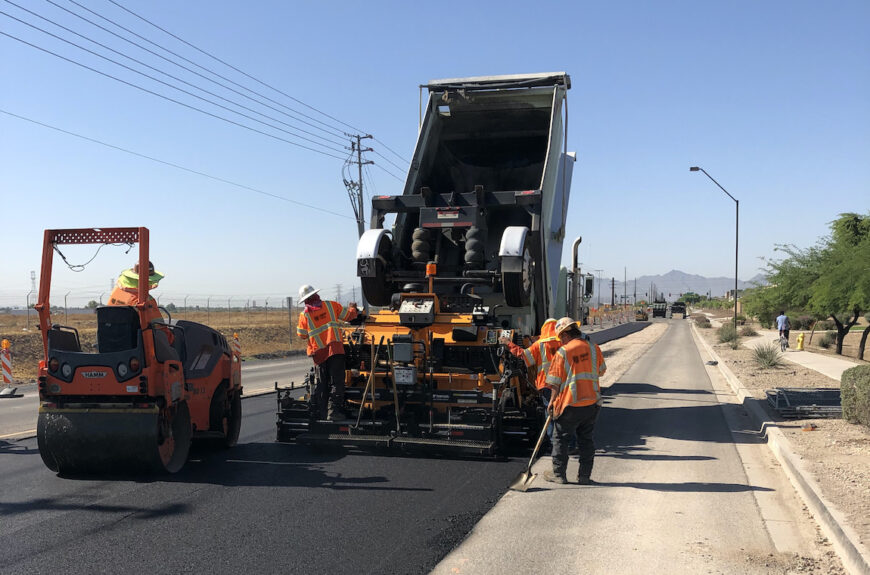
Optimize Your Asphalt Paving Operations with Traffic Safety Solutions
One critical aspect of asphalt paving jobs that often gets overlooked is the proper implementation of roadway work zones. Effective traffic management can significantly impact the safety and efficiency of your projects, reducing risks and minimizing downtime. Here we’ll explore why hiring a professional traffic safety company is a smart investment for your business and highlight some cutting-edge technologies and training programs that can make your work zones safer and more efficient.
The Case for Traffic Safety Experts
Managing a work zone isn’t just about putting up cones and signs; it’s about creating a controlled environment where both workers and motorists are protected. Professional traffic safety companies, like AWP Safety, are equipped with the latest tools and expertise to manage these zones effectively. Here’s why partnering with a professional can benefit your business:
- Professional companies manage hundreds of work zones daily, providing them with a deep understanding of the best practices and latest innovations in traffic control.
- These companies use sophisticated traffic control devices and methods that are often beyond the reach of individual contractors.
- Trained and certified Protectors ensure that all safety protocols are followed meticulously, reducing the likelihood of accidents and ensuring compliance with state and federal regulations.
New Technologies Making A Difference
Let’s delve into some of the innovative technologies that professional traffic safety companies can bring to the table:
- Automated Flagger Assistance Devices (AFADs) – AFADs are revolutionizing the way traffic is managed in work zones. These automated units can provide clear and consistent signals to motorists with or without manual intervention. AFADs are equipped with sensors that detect vehicle speed and communicate with visual indicators, like flags or lights, to guide traffic safely through the zone. A study by the Missouri Department of Transportation found that motorists were significantly more responsive to AFADs, with 78% of drivers preferring them over human flaggers. These devices not only improve safety by reducing human error but also operate around the clock, ensuring continuous protection.
- Portable Temporary Rumble Strips (PTRS) – PTRS are a cost-effective tool for managing traffic flow. These strips create the same tactile response as permanent strips when driven over, encouraging motorists to reduce speeds. Lightweight and easy to deploy, PTRS are ideal for temporary work zone setups.
- Truck Mounted Attenuators -Crash cushions help to safely transport equipment from one work zone to another, protecting both drivers and motorists. These devices absorb and dissipate the energy from impacts, reducing severity and decreasing vehicle damage. Advanced models can automatically adjust to the speed and weight of the impacting vehicle, providing optimal protection in a variety of scenarios.
The Power of Training
Using the expertise of professional traffic control specialists improves worksite safety; however, there are times when crews must perform self-flagging. Flagger training can help your team contribute to a safer worksite, even when professional flaggers are present.
Proper training is also essential to ensure that your crew can implement and maintain work zone safety measures and, in other instances, to qualify participants for American Traffic Safety Services Association (ATSSA) certification designations. Here’s how professional training can make a difference:
- Certified Training Programs – Program instruction ranges from basic safety protocols and work zone setup to advanced project coordination and traffic control devices. Employees can gain specific skills relevant to their roles, and supervisors can track progress to ensure everyone is up to standard.
- Real-Life Scenarios – Professional training often includes real-life scenario modeling and peer-to-peer coaching, providing practical experience that exceeds typical requirements. This hands-on approach helps workers to understand and react to actual work zone conditions effectively.
- State-Specific Requirements – In many states, traffic control personnel, such as flaggers, are required to complete state-approved training programs and sometimes meet specific training requirements. As an example, the Office of Commercial Vehicle Enforcement (CVE) within the Florida Department of Highway Safety and Motor Vehicles (FLHSMV) emphasizes specialized training for commercial vehicle operators, including aspects of work zone safety and compliance.
Investing in Safety Pays Off
Investing in professional traffic safety services isn’t just about compliance; it’s about protecting your crew and reputation. By leveraging the latest technologies and ensuring that your team is well-trained, you can reduce the risk of accidents, avoid costly downtime and complete projects more efficiently.
At AWP Safety, we understand the unique challenges that asphalt contractors face and are committed to providing the best traffic management solutions. With our expertise, advanced technology and comprehensive training programs, we can help you create safer, more productive work zones.
Ready to take your work zone safety to the next level? Request A Quote today and learn how we can best support your projects and protect your team.
